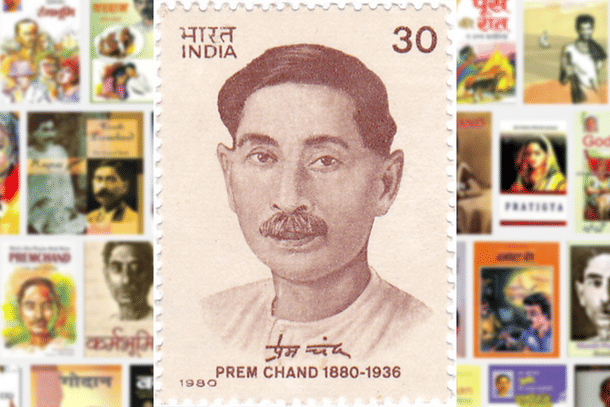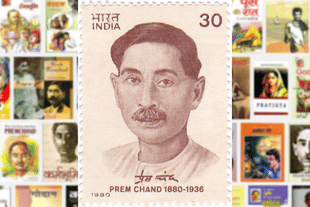News Brief
Amid Palpable Irritation Against Artist-Ideologues, Premchand’s “Jihad” Shows An Artist Can Be Subjective Yet Honest
Yaajnaseni
May 11, 2020, 09:07 AM | Updated 09:07 AM IST
Save & read from anywhere!
Bookmark stories for easy access on any device or the Swarajya app.


Today (10 January) is the World Hindi Day. As a linguistic variety, Hindi is the fourth most-spoken first language in the world, after Mandarin, Spanish and English.
A Hindi writer, unparalleled in his capacity to convey human experiences and emotions, is Munshi Premchand.
Of particular interest in today’s times, is his literature on Hindu-Muslim relations, not just in reference to the deep polarisation and cynicism of our times, but also the role of the art and the artists.
History and fiction
The difference between an artist and a historian writing over the same subject is the commitment to the non-partisanship and the truth, even if it goes against personal sensibilities or causes one holds dear.
In the words of Hedley Bull, “inquiry has its own morality and is necessarily subversive of political institutions and movements of all kinds, good as well as bad”.
On the other hand, a work of fiction is subjective. However, this freedom doesn’t absolve an author from all accountability.
We cannot expect from an author what we expect from a historian- the morality of inquiry. But we can expect, from a writer of social realism like Premchand, honesty.
A time when there is palpable irritation against “artists” preaching right and wrong to common people, a look at Munshi Premchand’s legacy shows, an artist can be subjective, yet honest.
Premchand’s short story Jihad
Premchand was deeply influenced by Non-cooperation movement led by Gandhi, and in the commendable attempt in his literature to form a bridge between the two communities, seems like a literary avatar of the Gandhian techniques.
Premchand’s literature reflects his unwavering faith in peaceful existence of Hindus and Muslims, and a belief in pluralism.
For this, he fishes into the common humanity of Hindus and Muslims - and in the words of M Asaduddin, writes about the external and internal lives of the members of both the communities with a kind of insight, empathy and intimacy that is unmatched.
Premchand also frequently brings up the issue that Hindus and Muslims don’t know each other very well despite living together for centuries. Islami Sabhyata and Karbala are dedicated to inspire a positive image of Islam in the minds of the readers.
However, even when Premchand lets his own faith and hope for the future and not the realities of the past and present guide his work, he doesn’t resort to dishonesty in portrayal of characters or situations.
In the short story Jihad, Premchand brings out the experience of Hindus who face the wrath of zealous Pathans in north-west India.
After the “anpadh (illiterate), dharmashunya (irreligious) Pathans” are preached by a Mulla, “Hindus are attacked. Their temples are demolished an their gods are abused. They are forcibly converted to Islam. Hindus are less in number, they are unorganised and dispersed, they are not prepared for the situation”.
Premchand also gives a candid description of what the Mulla teaches about Islam and why Pathans are attracted to his teachings.
“He [the Mulla] roars like a lion. Khuda has given you a life to illuminate this world with the light of Islam. Remove any sign of Kufr from this world. The sabab of converting a Kafir is greater than a lifetime of Roza, Namaz and Zakat. The hoors in the heaven will be at your pleasure, and the angels will rub their foreheads at you feet. Khuda will himself kiss your forehead. ”
“Listening to this, the whole crowd gets aroused and the religious slogans burst forth. This religious passion has given way to the distinction between Islam and Kufr. Each Pathan has become restless to enjoy the Jannat.”
Further in the story, Premchand, in the words of Saket Suryesh, brings out “the necessity of men to stand by their faith even in the face of worst atrocities. There are two friends in the story and at the end of it both the men are dead. But the one who compromised his faith dies a loser — unloved and unwept for, while the one who stays true to the faith dies victorious”.
The Hindu characters in the story are derogatorily referred to as Kafirs and given the option to convert to Islam or die. The way Premchand writes, one can almost suffer what they suffer in the story. The readers can find the full story here.
In a Scroll article, M Asaduddin says that in Jihad, Premchand “anticipates what goes today by the misleading and erroneous name of “Islamic” terror together”.
To the contrary, If anything, the story gives an insight into why “Islamic” and “terror” go together.
In a story he chose to title Jihad, Premchand doesn’t plead adherence to facts of history or theology. That is not his job as a fiction-writer.
However, his description of the inspiration behind Hindu hatred - the hatred of kufr and the inferiority of Kafirs, the significance of converting them to Islam, the belief that Khuda wants one to do so, the seduction of getting beautiful women in paradise, reverberates with the reality of radical Islam today.
Premchand holds the Mulla responsible for spreading the fanaticism. Not being a theologian, Premchand cannot comment on what Islam does or doesn’t say. He simply leaves it for the Muslim readers to counter what the Mulla preaches.
Contrary to the sensibility of many intellectuals, the future of unity and solidarity borne out of Premchand’s personal faith and hope is not based on obfuscation of reality.
In Jihad, Premchand doesn’t run away from the hard questions, nor simplifies them. He simply packs them with the hope that they can be answered.
A 25-year-old IIT alumna with deep interest in society, culture and politics, she describes herself as a humble seeker of Sanatana wisdom that has graced Bharatvarsha in different ways, forms and languages. Follow her @yaajnaseni





